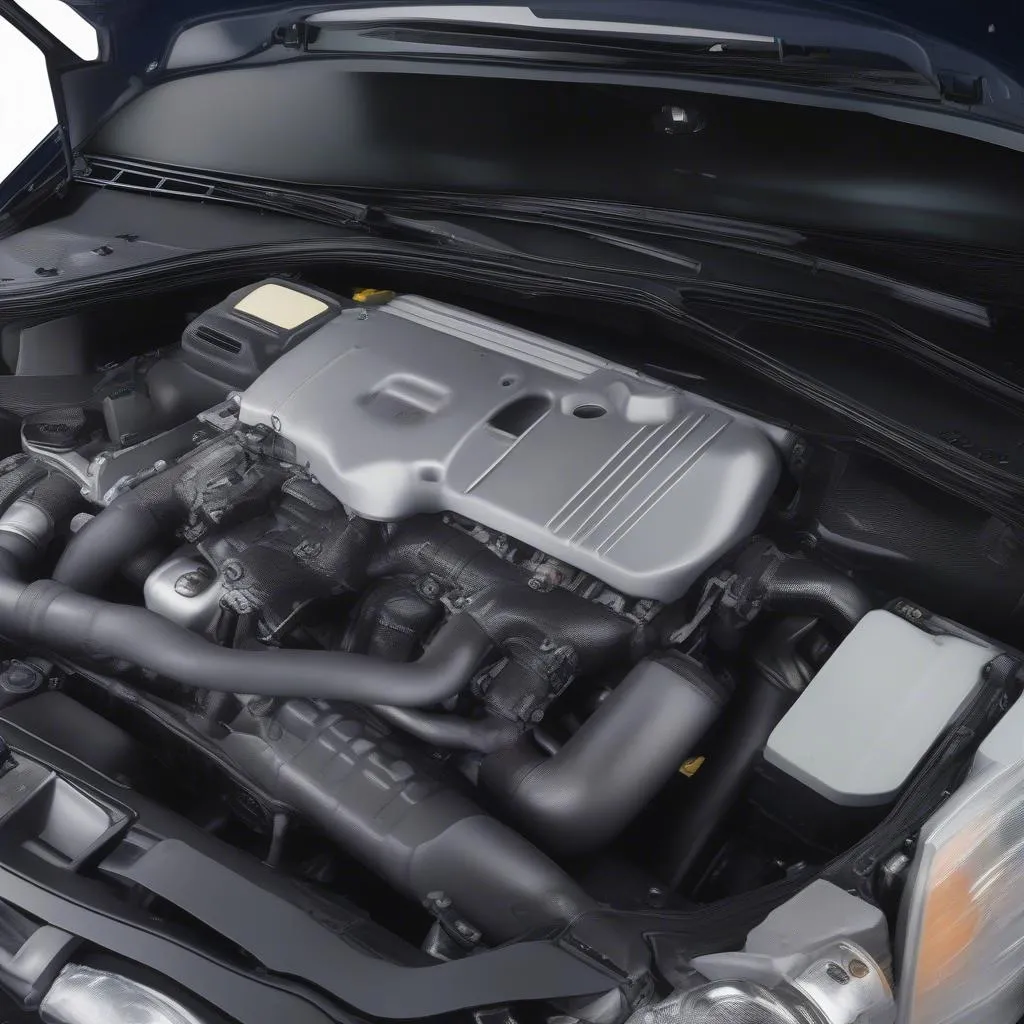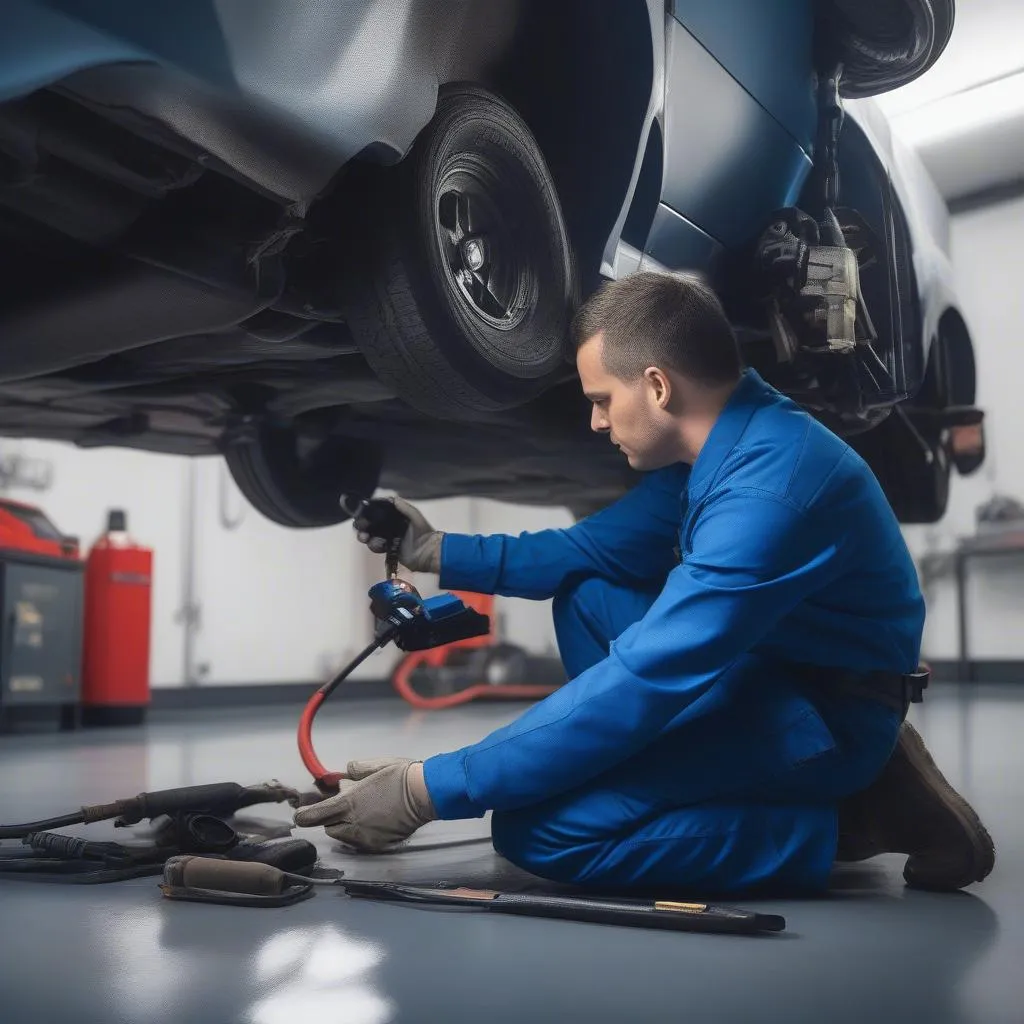Picture this: You’re cruising down the Pacific Coast Highway in your trusty 2001 Honda CR-V, the California sun warming your face. Suddenly, that dreaded Check Engine light pops up on your dashboard, casting a shadow over your blissful drive. You pull over, grab your trusty OBD-II scanner, and bam – you’re staring at the cryptic code P0457.
Don’t panic! We’re here to decode this mystery and get you back on the road. This article will delve into the meaning of OBD code P0457, specifically focusing on its implications for your 2001 Honda CR-V.
Decoding the Mystery: What Does OBD Code P0457 Mean?
In simple terms, the P0457 code signifies a problem with your Evaporative Emission Control (EVAP) system. Think of this system as your car’s way of being environmentally responsible. It prevents fuel vapors from escaping into the atmosphere by capturing and redirecting them back into the engine for combustion.
The Technical Nitty-Gritty:
“P0457” specifically indicates that the EVAP system has detected a large leak. This means that somewhere along the intricate network of hoses, valves, and sensors, a significant amount of fuel vapor is escaping.
Why Should You Care?
Beyond keeping the air clean, a properly functioning EVAP system is crucial for optimal engine performance and fuel economy. Ignoring a P0457 code can lead to:
- Increased emissions: This contributes to air pollution and harms the environment.
- Reduced fuel efficiency: Leaking fuel vapors mean you’re wasting gas and money.
- Potential engine damage: In some cases, a large EVAP leak can disrupt the air-fuel mixture, potentially harming your engine in the long run.
Common Culprits Behind the P0457 Code in a 2001 Honda CR-V
Now that we know what this code means, let’s dive into the usual suspects causing it in your 2001 CR-V:
- Loose or Damaged Gas Cap: Surprisingly, a loose or faulty gas cap is one of the most common causes of EVAP leaks. It’s the simplest and cheapest fix, so always check this first!
- Cracked or Damaged EVAP Hoses: Over time, the rubber hoses within the EVAP system can crack or deteriorate, leading to leaks.
- Faulty Purge or Vent Control Valve: These valves regulate the flow of fuel vapors within the EVAP system. A malfunctioning valve can disrupt this flow and trigger the P0457 code.
- Leaking Fuel Filler Neck: While less common, a rusty or damaged fuel filler neck can also be the source of the leak.
Troubleshooting and Fixing the P0457 Code
Before you rush to the mechanic, here are a few steps you can try yourself:
- Inspect the Gas Cap: Ensure it’s tightly sealed and replace it if it’s damaged.
- Visually Inspect EVAP Hoses: Look for any cracks, loose connections, or signs of damage.
- Listen for Hissing Sounds: A hissing sound near the fuel tank or engine bay while the engine is running could indicate a leak.
If these initial checks don’t pinpoint the problem, it’s best to consult a qualified mechanic experienced with Honda vehicles. They have the specialized tools and expertise to diagnose and repair the issue effectively.
Frequently Asked Questions About the P0457 Code
Q: Can I still drive my car with a P0457 code?
A: While your car might still be drivable, it’s not recommended to ignore this code. Driving with a large EVAP leak can negatively impact your car’s performance and the environment.
Q: How much does it cost to fix a P0457 code?
A: The repair cost depends on the underlying cause. A simple gas cap replacement might cost you under $20, while a faulty purge valve or hose replacement could range from $100 to $400.
Q: How do I know if my gas cap is bad?
A: Inspect your gas cap for visible cracks or damage. If it looks worn or doesn’t seal tightly, it’s best to replace it.
Related Questions and Topics
Here are some other questions and topics related to the P0457 code that you might find helpful:
- How to reset the Check Engine light after fixing the EVAP leak?
- Common EVAP system components and their functions.
- DIY vs. Professional EVAP system repair: Which is right for me?
 2001 Honda CRV Engine, car engine
2001 Honda CRV Engine, car engine
 Car Inspection, Mechanic, EVAP Leak
Car Inspection, Mechanic, EVAP Leak
Need More Help?
Still, have questions about that pesky P0457 code? Don’t hesitate to reach out to our team of auto repair experts via WhatsApp at +84767531508. We’re available 24/7 to provide expert advice and guidance on all your car repair needs.
Conclusion
While encountering the P0457 code can be frustrating, understanding its meaning and taking prompt action can save you from headaches down the road. Remember, a well-maintained car is a happy car (and a happy driver!).